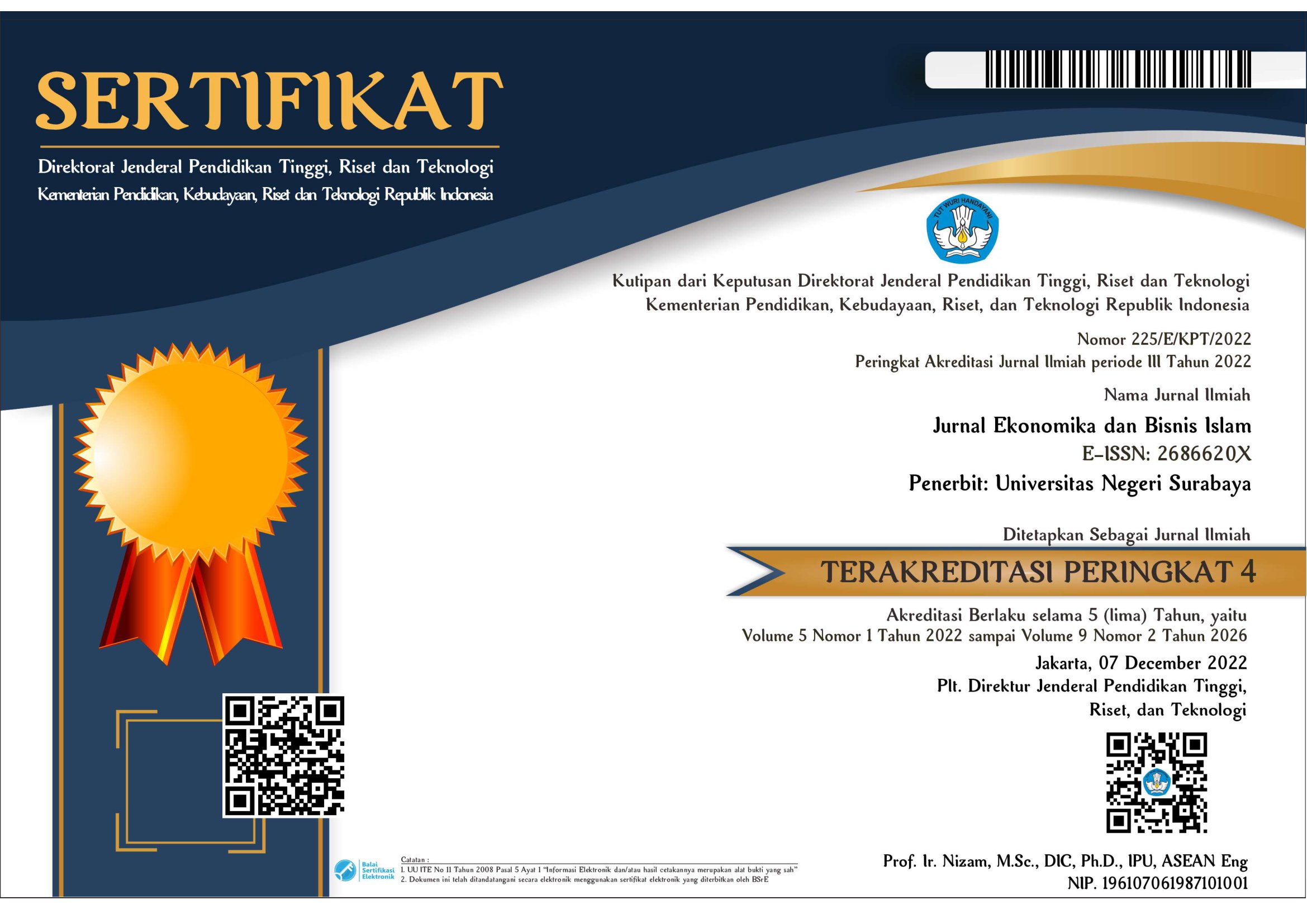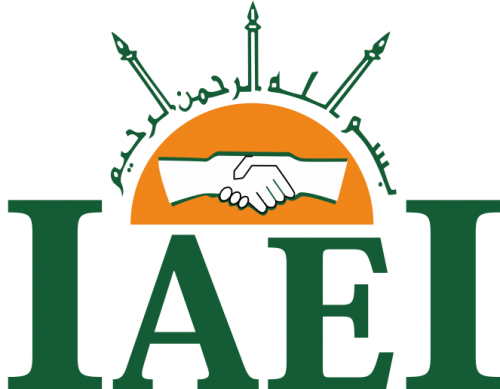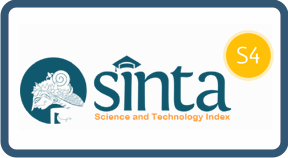Analisis Skala Produksi UMKM Musae Chips Sebelum dan Sesudah Pembinaan Oleh KPw Bank Indonesia Jember
DOI:
https://doi.org/10.26740/jekobi.v7n3.p121-135Keywords:
UMKM, Pembinaan, Skala Produksi, Wawancara, DeskriptifAbstract
The MSME development program has become a key instrument in increasing consumer purchasing power, ultimately helping to mitigate monetary crises. Bank Indonesia plays a role as the monetary authority, with the Social Program of Bank Indonesia (PSBI) serving as an expression of empathy in addressing socio-economic issues. The KPw Bank Indonesia is also involved in MSME development programs, including the Musae Chips banana chips MSME in Jember. This study aims to: Understand the development process by KPw Bank Indonesia Jember for Musae Chips MSME, and Compare the production scale before and after the development program. The research employs a qualitative approach with a descriptive method, conducted at KPw Bank Indonesia Jember and Musae Chips MSME in Bangsalsari, Jember. Data collection techniques include observation, interviews, and documentation, with descriptive analysis and data validation through source triangulation. The results show that the development process focuses on enhancing MSME skills through training in various areas, including management, production, financing, and marketing, as well as organizing exhibitions to expand market reach. The production scale of Musae Chips MSME increased after the development program, but input costs also rose, affecting the product's pricing. The implications of these results indicate that the training successfully improved the skills and production scale of Musae Chips' MSMEs, which has the potential to expand market reach. However, the increase in input costs after the training may affect product prices, requiring a competitive pricing strategy to remain attractive to consumers.
References
Alfansyur, A., & Mariyani, M. (2020). Seni mengelola data: Penerapan triangulasi teknik, sumber dan waktu pada penelitian pendidikan sosial. Historis: Jurnal Kajian, Penelitian Dan Pengembangan Pendidikan Sejarah, 5(2), 146–150.
Algan, N. (2019). The importance of SMEs on world economies. Proceedings of International Conference on Eurasian Economies, Turkish Republic of Northern Cyprus, 12.
Ali, I., Nagalingam, S., & Gurd, B. (2017). Building resilience in SMEs of perishable product supply chains: enablers, barriers and risks. Production Planning & Control, 28(15), 1236–1250. https://doi.org/10.1080/09537287.2017.1362487
Álvarez Jaramillo, J., Zartha Sossa, J. W., & Orozco Mendoza, G. L. (2019). Barriers to sustainability for small and medium enterprises in the framework of sustainable development—L iterature review. Business Strategy and the Environment, 28(4), 512–524.
Bakti, S. (2023). Studi Kelayakan Bisnis. PT Inovasi Pratama Internasional.
Bhegawati, D. A. S., & Utama, M. S. (2020). The role of banking in Indonesia in increasing economic growth and community welfare. South East Asia Journal of Contemporary Business, Economics and Law, 22(1), 83–91.
Bi.go.id. (2020). Hubungan dengan Pemangku Kepentingan: Program Sosial Bank Indonesia (PSBI). https://www.bi.go.id/id/tentang-bi/profil/governance/Hubungan-dengan-Pemangku-Kepentingan.aspx
Del Monte, A., & Pennacchio, L. (2020). Historical roots of regional entrepreneurship: The role of knowledge and creativity. Small Business Economics, 55, 1–22.
Dutta, G., Kumar, R., Sindhwani, R., & Singh, R. K. (2021). Digitalization priorities of quality control processes for SMEs: a conceptual study in perspective of Industry 4.0 adoption. Journal of Intelligent Manufacturing, 32(6), 1679–1698. https://doi.org/10.1007/s10845-021-01783-2
Elhusseiny, H. M., & Crispim, J. (2022). SMEs, Barriers and Opportunities on adopting Industry 4.0: A Review. Procedia Computer Science, 196, 864–871.
Fahrudin, F. (2020). Analisis Peran Program Umkm Binaan Kantor Perwakilan Bank Indonesia Provinsi Lampung Terhadap Perkembangan Umkm Menurut Perspektif Ekonomi Islam. Uin Raden Intan Lampung.
Fatmawati, F., Mutmainnah, M., & Ponto, S. (2024). Effect of Qris Use on MSME Business Income. Advances in Economics & Financial Studies, 2(3), 128–140.
Fauziah, A. P. (2024). Implementasi Program Kerja Bank INDONESIA dalam Pengembangan Ekonomi dan Keuangan Syariah (Study Kasus BI Kota Cirebon). El-Arbah: Jurnal Ekonomi, Bisnis Dan Perbankan Syariah, 8(1), 48–64.
Gelatan, L., Narew, I., Tomu, A., Sabir, M., & Rosdiana, R. (2023). Membangun Bisnis Berkelanjutan: Pentingnya Sosialisasi dan Pelatihan Penyusunan Laporan Keuangan Bagi UMKM. ABDI DAYA: Jurnal Pengabdian Dan Pemberdayaan Masyarakat, 1(1), 12–27.
Harto, D., Pratiwi, S. R., Utomo, M. N., & Rahmawati, M. (2019). Penerapan internet marketing dalam meningkatkan pendapatan pada UMKM. JPPM (Jurnal Pengabdian Dan Pemberdayaan Masyarakat), 3(1), 39–45.
Hassan, A., & Zahran, S. (2022). The Importance of Digital Marketing in Building Brand Loyalty. International Conference on Business and Technology, 155–163.
Hidayat, A., Lesmana, S., & Latifah, Z. (2022). Peran Umkm (Usaha, Mikro, Kecil, Menengah) Dalam Pembangunan Ekonomi Nasional. Jurnal Inovasi Penelitian, 3(6), 6707–6714.
Ilianti, F., Atmadja, I. K., & Herwina, W. (2024). Implementation of Community Empowerment Through the PSBI Bank Indonesia CSR Program. Edukasi, 18(1), 75–84.
Indrawati, H. (2020). Barriers to technological innovations of SMEs: how to solve them? International Journal of Innovation Science, 12(5), 545–564.
Irawan, A., & Sukiyono, K. (2021). the Role of Small and Medium Enterprises (SME) on the Economy. International Journal of Social Science, 1(4), 467–472.
Juliana, J., Faathir, M., & Sulthan, M. A. (2019). Implementasi etika bisnis islam pelaku usaha mikro: studi kasus pada pelaku usaha mikro syariah puspa Bank Indonesia wilayah Jawa Barat di Bandung Tahun 2017. Strategic: Jurnal Pendidikan Manajemen Bisnis, 19(1), 36–43.
Listiawati, R., Vidyasari, R., & Novitasari, N. (2022). QRIS Efficiency in Improving Digital Payment Transaction Services for Culinary Micro-Small and Medium Enterprises in Depok City. Operations Research: International Conference Series, 3(2), 67–73.
Mappasere, S. A., & Suyuti, N. (2019). Pengertian Penelitian Pendekatan Kualitatif. Metode Penelitian Sosial, 33.
Nurhayati, N., Kristianti, I., & Permatasari, C. L. (2024). Penggunaan Analisis SWOT dan Uji Litmus dalam Menentukan Strategi Pengelolaan Modal untuk Peningkatan Produksi UMKM Ina Konveksi. Jurnal Samudra Ekonomi Dan Bisnis, 15(1), 100–116.
Prakash, B., Kumar, I., & Verma, J. K. (2021). Barriers and potential solutions for MSMEs in developing economies: Evidence from India. Problems and Perspectives in Management, 19(4), 325–337.
Putro, D. R., & Askafi, E. (2020). Pola Pembinaan Bank Indonesia Terhadap UMKM Di Kota Kediri. REVITALISASI: Jurnal Ilmu Manajemen, 9(2), 153–171.
Rahardjo, M. (2010). Triangulasi dalam penelitian kualitatif.
Ramadhan, A. (2021). Dampak Pelaksanaan Program Pendampingan Bank Indonesia Terhadap Pengembangan Umkm Di Kota Malang (Studi Kasus Program Pendampingan On Boarding 2020 Bank Indonesia Kota Malang Pada Umkm Kopi). Universitas Brawijaya.
Ramdhan, M. (2021). Metode Penelitian (AA Effendy. Cipta Media Nusantara.
Saadah, M., Prasetiyo, Y., & Rahmayati, G. (2022). Strategi Dalam Menjaga Keabsahan Data Pada Penelitian Kualitatif. Al-’Adad: Jurnal Tadris Matematika, 1(2 SE-Articles). https://doi.org/10.24260/add.v1i2.1113
Sahir, S. H. (2021). Metodologi penelitian. Penerbit KBM Indonesia.
Sarasvathy, S. D. (2008). Effectuation: Elements of entrepreneurial expertise. In Effectuation. Edward Elgar Publishing.
Sariwulan, T., Suparno, S., Disman, D., Ahman, E., & Suwatno, S. (2020). Entrepreneurial performance: The role of literacy and skills. The Journal of Asian Finance, Economics and Business, 7(11), 269–280.
Soleha, A. R. (2020). Kondisi UMKM masa pandemi covid-19 pada pertumbuhan ekonomi krisis serta program pemulihan ekonomi nasional. EKOMBIS: Jurnal Fakultas Ekonomi, 6(2).
Surya, B., Menne, F., Sabhan, H., Suriani, S., Abubakar, H., & Idris, M. (2021). Economic growth, increasing productivity of SMEs, and open innovation. Journal of Open Innovation: Technology, Market, and Complexity, 7(1), 20.
Syahriani, N., Siregar, A. J., & Nasution, W. (2022). Analisis Peran Bank Indonesia Dalam Pengembangan Umkm Di Kancah Internasional. Jurnal Manajemen Akuntansi (JUMSI), 2(3), 687–693.
Tambunan, T. (2019). Recent evidence of the development of micro, small and medium enterprises in Indonesia. Journal of Global Entrepreneurship Research, 9(1), 18.
Tjan, J. S. (2023). The Effect SME in Overcoming Poverty and Unemployment: Empirical Study of Makassar City, Indonesia. Golden Ratio of Social Science and Education, 3(1), 14–23.
Wahyunti, S. (2020). Peran strategis UMKM dalam menopang perekonomian Indonesia di Tengah Pandemi Covid-19. J-ESA (Jurnal Ekonomi Syariah), 3(2), 280–302.
Downloads
Published
How to Cite
Issue
Section
License
Copyright (c) 2024 Amalia Masruroh, Hani Khairo Amalia, Tika Widiastuti

This work is licensed under a Creative Commons Attribution 4.0 International License.
This work is licensed under a Creative Commons Attribution 4.0 International License.
 Abstract views: 108
,
Abstract views: 108
, PDF Downloads: 135
PDF Downloads: 135














